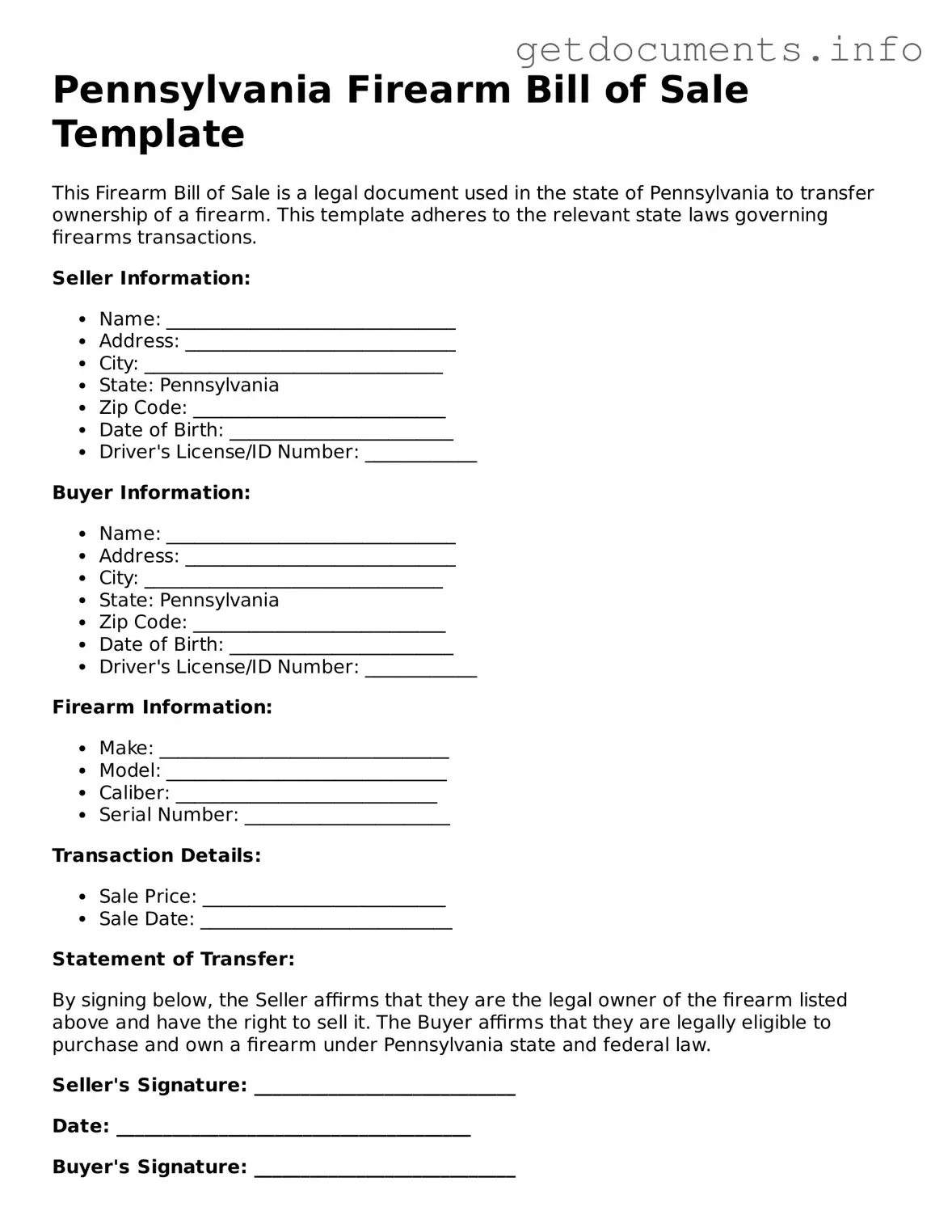Free Firearm Bill of Sale Template for Pennsylvania
The Pennsylvania Firearm Bill of Sale form is a legal document that records the transfer of ownership of a firearm from one party to another. This form serves as proof of the transaction and includes essential details about the buyer, seller, and the firearm itself. Completing this form is crucial for ensuring compliance with state laws regarding firearm sales.
Ready to make your firearm transfer official? Fill out the form by clicking the button below.
Access Firearm Bill of Sale Editor

Free Firearm Bill of Sale Template for Pennsylvania
Access Firearm Bill of Sale Editor
Got places to be? Complete the form fast
Fill out Firearm Bill of Sale online and avoid printing or scanning.
Access Firearm Bill of Sale Editor
or
⇩ PDF File
